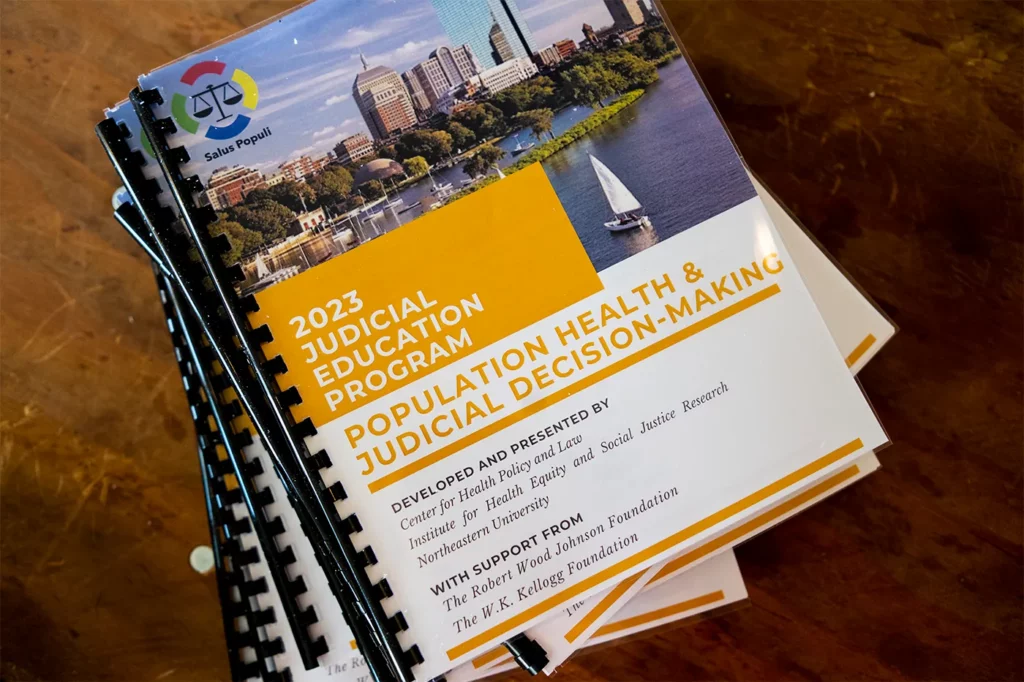
research applied


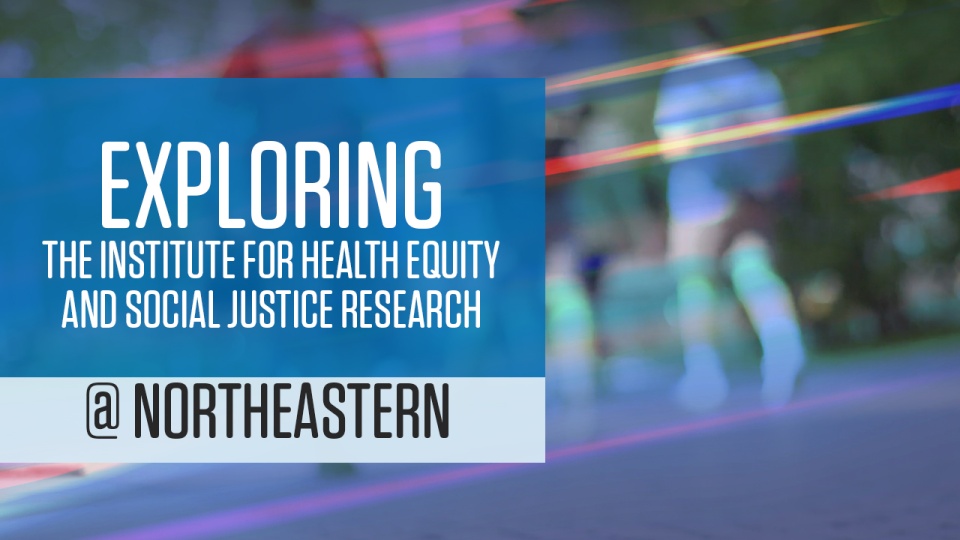
Video: Learn about Health Equity and Social Justice Research in Action
Disparities in health and mental health arise and persist as the result of complex individual, societal, and global factors. We bring together faculty and students from across Northeastern University, along with external research partners, to tackle these complex challenges. Our teams draw upon a wide range of research methods and interventions, but share a common commitment to promoting health equity and social justice through high-impact, community engaged research.
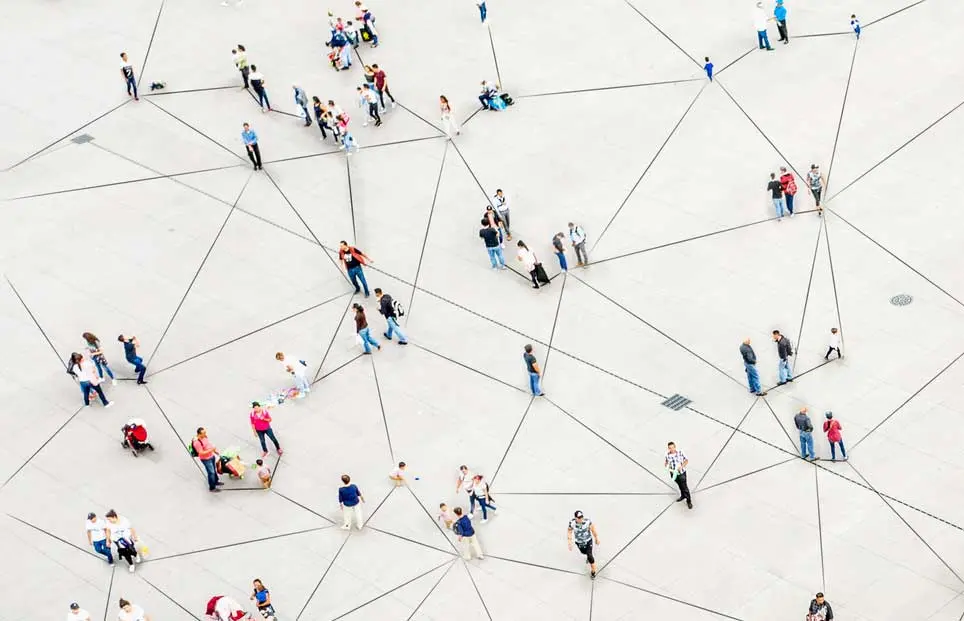

REAL-WORLD

research CLUSTER
For more than a decade, the institute has organized interdisciplinary research teams to improve the lives of refugee and immigrant populations. We work with partners such as Harvard Medical School and Boston Children’s Hospital to explore discrimination and health issues among Somali refugees. Another current project involves the impact that sanctuary cities have on health and well-being have on its communities.
world class

research CLUSTER
The institute conducts research on the cause and prevention of violence, including child abuse, youth violence, sexual assault, community violence, and intimate partner/teen dating violence. We evaluate the effectiveness of proposed interventions and develop new interventions based on an ecological approach to environmental, social, and individual determinants of violence.
thought leaders

research CLUSTER
The institute is home to national thought leaders in behavioral health research, with a special emphasis on mental health and substance misuse. We explore how stigma, discrimination, and socioeconomic factors affect access to education, employment, and medical health. The institute also promotes public involvement in our research through community-based participatory research methods.
community
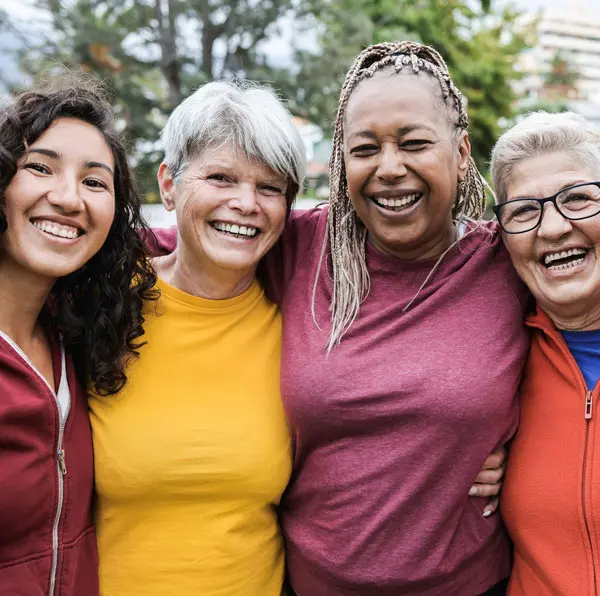
research CLUSTER
Institute faculty research how social and economic factors influence health and disease prevention. Currently, we are focused on HIV/AIDS, obesity, and Hepatitis C, as well as how racial and ethnic disparities affect pregnancy outcomes across generations.
equity

research CLUSTER
Efforts to dismantle health inequities and drive positive health outcomes require continued training and support of a diverse health care workforce and strengthening capacities across sectors to engage in health equity efforts. Institute work in this area includes: critical examination of existing strategies and policies across various sectors; identification, dissemination, and evaluation of new strategies to diversify the academic health science workforce; as well as training a diverse workforce of health care workers, judges, and lawyers to understand their impact on population health and health equity.
Students who are affiliated with the Institute for Health Equity and Social Justice Research and who are presenting at a conference can request funds to cover conference expenses through our Student Conference Funding Request Form. Before filling out this form, you must first request funding from all other Northeastern University resources available to you (see below in the form for what those resources are).
After submitting the form, the IHESJR team will get back to you within two weeks of form completion. If you need the funds before that review time frame, please email Suzanne at [email protected] to discuss your timeline.
ACCESS THE STUDENT CONFERENCE FUNDING REQUEST FORM!
Health Equity Interns are Northeastern University undergraduate students who commit to working four hours a week during one academic semester at the Institute on Health Equity and Social Justice Research in its mission of conducting research towards advancing health equity and social inclusion and reducing health disparities. Opportunities are available for interns to continue an affiliation with the Institute once the semester internship is completed.
The health equity internship includes the following:
Your responsibilities would be as follows:
Spring 2026 application will open in early October! Check back for the link to the application portal.
Please reach out to Suzanne Garverich at [email protected] with any questions regarding the application process.
*Please note that first semester Health Equity Interns must be enrolled in classes and cannot be on co-op.*
Starting in the spring of 2022 we will have an opportunity for a dual internship experience with the Women’s Research and Engagement Network (WREN). WREN, is a student-led program dedicated to promoting and celebrating the success of female-aligned individuals at Northeastern.
As a dual program member, you will receive all the benefits of the Health Equity Internship program and more. You will be considered a WREN Scholar, meaning that you will have access to career panels, skills-based trainings, and social networking nights with an interdisciplinary cohort of undergraduate women in research.
During fall semesters, Scholars also will be eligible to present their research at the WREN Summit, the nation’s first undergraduate interdisciplinary women’s research conference.
To support your participation in both the WREN Scholar Program and the Health Equity Internship, attendance requirements for each will be adjusted accordingly. There will be an additional 2-3 hours of events/trainings a month for the dual internship.
If you are a female-aligned individual and would like to apply to the dual internship please indicate that on the Health Equity Intern application.
With the support the Bouvé College of Health Sciences, the Institute for Health Equity and Social Justice Research has been able to provide funding to support Faculty Scholars as they develop their research portfolios in advancing the goals of health equity for diverse populations made vulnerable through marginalization and exclusion through the Advancing Health Equity Pilot Awards.
The PEAK Experiences Awards are funded by the Office of Undergraduate Research and Fellowships, a progressively structured sequence of opportunities designed to support students as they continue climbing to new heights of achievement in undergraduate research and creative endeavor throughout their Northeastern journeys.IHESJR Faculty Scholars and Research Advisors provide mentorship to students as they apply for the award as well as when they are conducting the awarded research.

Analia Albuja
Assistant Professor
College of Science
Title: The Effect of Changing United States Demographics on White/Black, White/Asian, and White/Latine Biracial People’s Identity and Well-Being

AC Goldberg
Visiting Snell Assistant Clinical Professor
Bouvé College of Health Sciences
Title: Proposal for Startup Grant to Study the Impact of Financially Accessible Gender-Affirming Voice Services

Lorna Hayward
Associate Professor
Bouvé College of Health Sciences
Title: Increasing Equitable Opportunities for Power Wheelchair Adaptive Team Sport Involvement by Adults with Disabilities: An Evidence-Based Approach to Understanding Sport Impact on Cardiovascular Fitness and Well-Being

Amy Helburn
Associate Professor
Bouvé College of Health Sciences
Title: The Effect of Variation in U.S. State-Level Perinatal Benefits on Rates of Pregnancy, Birth, and Voluntary Termination of Parental Rights (2017-2024)

Miki Hong
Assistant Adjunct Professor
Mills College at Northeastern University
Title: California Tobacco Control Policies in the Comprehensive Plan: Connecting Public Health to Urbanism

Rachel Rodgers
Associate Professor Professor
College of Social Sciences and Humanitites, Bouvé College of Health Sciences
Title: Developing an Intervention to Increase Food Industry Literacy
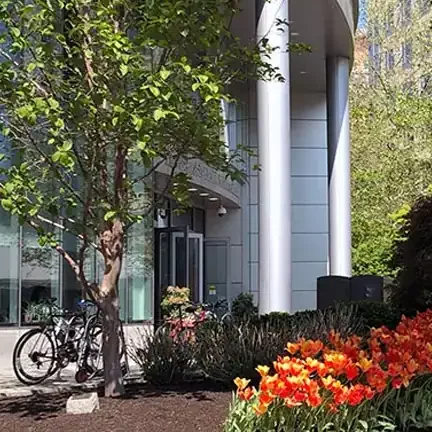
Laura Dudley
Assistant Clinical Professor
Bouvé College of Health Sciences
Title: Prevalence of Mindfulness-Based Practices Among Diverse Populations

Lorna Hayward
Associate Professor
Bouvé College of Health Sciences
Title: Exploring the Physical and Mental Health Benefits of Access to Equitable Adaptive Power Wheelchair Sports for Adults, Young Adults with Physical Disabilities

Miki Hong
Assistant Adjunct Professor
Mills College at Northeastern University
Title: Marrying Urban Planning and Public Health: Built Environments, Comprehensive Plans, and Tobacco Control

Rachel Rodgers
Associate Professor
College of Social Sciences and Humanitites, Bouvé College of Health Sciences
Title: Real2RealSSI: A Single-Session Social Justice Informed Body Image Intervention

Katherine Simmonds
Clinical Professor
Bouvé College of Health Sciences, The Roux Institute
Title: Investigating Innovative Models of Community-Based Health Centers to Inform the Expansion of an Existing Free Clinic in Knox County, Maine

Moka Yoo-Jeong
Assistant Professor
Bouvé College of Health Sciences
Title: Evaluation of a Clinically-Integrated Community Health Worker Program to Support Adults with Cardiovascular Conditions Guided by the PRISM Framework

Leanne Chukoskie
Associate Professor
Bouvé College of Health Sciences & College of Arts, Media and Design
Title: An Intergenerational Game Jam

Danielle Crookes
Assistant Professor
Bouvé College of Health Sciences & College of Social Science and Humanities
Title: Sanctuary Policies and Receipt of Preventive Cardiovascular Care Among Immigrants in the US

Lorna Hayward
Associate Professor
Bouvé College of Health Sciences
Title: Increasing Access to Equitable Adaptive Sports Opportunities to Promote Physical and Mental Health for College Students with Disabilities

Rebekah Moore
Assistant Professor
College of Arts, Media and Design
Title: Advancing Racial and Health Equity through the Arts: A community-engaged research study in the city of Boston

John Olawepo
Assistant Teaching Professor
Bouvé College of Health Sciences
Title: An Exploration of Barriers to and Facilitators of Sickle Cell Disease Newborn Screening in Nigeria: A Qualitative Study

Rachel Rodgers
Associate Professor
Bouvé College of Health Sciences
Title: Towards Parent-led Interventions for Body Inclusiveness

Dani Snyder-Young
Assistant Professor
College of Arts, Media and Design
Title: Studying Social Stigma and Affect in Diverse Audiences of “This is Treatment”

Jordan Bosse
Assistant Professor
University of Rhode Island – College of Nursing
Project: Moral Reckoning with Nurses’ Actions, Inactions, and Silence that May Perpetuate Health Inequity Among Lesbian, Gay, Bisexual, Transgender, and Queer (LGBTQ+) People

Jessica Hoffman
Professor
Bouvé College of Health Sciences

Tiffany Joseph
Associate Professor
College of Social Sciences and Humanitites

Miso Kim
Assistant Professor
College of Arts, Media, and Design

Jeanne Madden
Associate Professor
Bouvé College of Health Sciences

John Olawepo
Assistant Clinical Professor
Bouvé College of Health Sciences

Rachel Rodgers
Associate Professor
College of Social Sciences and Humanities, Bouvé College of Health Sciences

Carmel Salhi
Associate Professor
Bouvé College of Health Sciences

Claudia Santelices
Associate Research Professor
Bouvé College of Health Sciences

Linda Blum
Professor of Sociology
College of Social Sciences and Humanities
Title: BRCA Communities In the Pandemic: Exploring the Role of Online Peer Support

Tiffany Joseph
Associate Professor
College of Social Science and Humanities
Title: (Not) All In: Race, Ethnicity, Immigration, Exclusion, and Health Care in America’s City on a Hill

Miso Kim
Assistant Professor
College of Arts, Media and Design
Title: Designing services to assist isolated older adults in senior living centers during COVID-19

Dami Ko
Assistant Professor
School of Nursing
Title: Socioeconomic Inequities in Health among Urban Liver Transplant Recipients

Danielle Levac
Assistant Professor
Bouvé College of Health Sciences
Title: Immersive virtual reality as a training modality for the development of a growth mindset in economically-disadvantaged children and youth

Margo Lindauer
Associate Professor
School of Law and Bouvé College of Health Sciences
Project: Domestic Violence Clinic

Amy Lu
Associate Professor
College of Arts, Media and Design and Bouvé College of Health Sciences
Title: How effective are active video games? A meta-analysis across the lifespan in clinical and nonclinical populations

Collette Ncube
Research Associate of Epidemiology
Boston University School of Public Health
Title: Un-Masking the Origins of Maternal Mortality/Morbidity Inequities (UMOMMI)

Kara Pavone
Assistant Professor
Bouvé College of Health Sciences
Title: Pain-Related Disparities Among Patients with Substance Use Disorder

Hermine Poghosyan
Assistant Professor
Faculty, School of Nursing
Title: Racial/ethnic disparities in lung cancer screening potentially due to current screening guidelines

Rachel Rodgers
Associate Professor
College of Social Sciences and Humanities and Bouvé College of Health Sciences
Title: Beyond White Bread: A Delphi Study for an Equitable Healthy Eating Scale

Tiffany Joseph
Associate Professor
College of Social Sciences and Humanities

Miso Kim
Assistant Professor
College of Arts, Media, and Design

Collette Ncube
Research Associate of Epidemiology
Boston University School of Public Health

Rachel Rodgers
Associate Professor
College of Social Sciences and Humanities, Bouvé College of Health Sciences

Carmel Salhi
Associate Professor
Bouvé College of Health Sciences

Laura Senier
Assistant Professor
College of Social Sciences and Humanitites, Bouvé College of Health Sciences

Dani Snyder-Young
Assistant Professor
College of Social Sciences and Humanities, College of Arts, Media, and Design

Lichuan Ye
Associate Professor
Bouvé College of Health Sciences

Meryl Alper
Associate Professor
College of Arts, Media, and Design

Jeanne Madden
Associate Professor
Bouvé College of Health Sciences

Andrea Parker
Associate Professor
Georgia Institute of Technology

Rachel Rodgers
Associate Professor
College of Social Sciences and Humanities, Bouvé College of Health Sciences

Carmel Salhi
Associate Professor
Bouvé College of Health Sciences

Laura Senier
Assistant Professor
College of Social Sciences and Humanities, Bouvé College of Health Sciences

Liza Weinstein
Associate Professor
College of Social Sciences and Humanities

Ariana Eiseman Bouvé ‘25
Title: Assessing the Antimicrobial Stewardship Practices of a Leading Tertiary Hospital in Ghana
Mentor: Tamara Jimah, Bouvé, Health Sciences
Ascent Award

Jasmine Elsayed COS’25
Title: Identifying Positive and Negative Association Terms in Narrative Recalls from Trauma Victims
Mentor: Amantia Ametaj, Bouvé, Health Sciences
Ascent Award

Rohan Chopra Khoury’26
Title: Comparing Injury Patterns and Healthcare Utilization among Transgender and Cisgender IPV Survivors
Mentor: Winston Kennedy, Bouvé, Physical Therapy, Movement, and Rehabilitation Sciences
Ascent Award

Emily Wu Bouve’25
Title: Fostering Community-Engagement in Operationalizing Climate Gentrification
Mentor: Patrice C. Williams, CSSH, Public Policy and Urban Affairs
Ascent Award

Samadhi Wijethunga COS’25
Ascent Award
Title: Single-Cell Genome Sequencing of Somatic Mutations of Synuclein Pathological Human Neurons in Parkin
Mentor: Dami Ko, Bouvé, Nursing

Noah Brenman Bouvé ‘27
Title: Alzheimer’s Disease and Disparity: A Rural Undercounting
Mentor: Nasim Ferdows, Bouvé, Health Sciences
Ascent Award

Rohan Chopra Khoury ’26
Title: Building an LLM-Driven Chatbot to Support and Empower Transgender Individuals Facing IPV
Mentor: Winston Kennedy, Bouvé, Physical Therapy, Human Movement, and Rehabilitation Sciences
Summit Award

Laila Harruna
Title: An Examination of Multi-Level Predictors of Youth Social Competence
Mentor:
Shout it Out Award

Vivian Lin Bouvé ‘27
Title: Covid-19’s Impact on Stroke Mortality Rates in Rural vs Urban Areas
Mentor: Nasim Ferdows, Bouvé, Public Policy and Urban Affairs
Ascent Award

Ria Mukhopadhyay Bouvé ’25
Title: Salus Populi Evaluation
Mentor: Katherine Hazen, CSSH, Criminology & Criminal Justice
Ascent Award

Joud Rai COS ‘27
Title: Judicial Training Program Survey Development and Management
Mentor: Katherine Hazen, CSSH, Criminology & Criminal Justice
Ascent Award

John Signorile Bouvé ‘26
Title: Early Childhood Mental Health Families Independence, Resilience, and Training (ECMH FIRST)
Mentor: Beth Molnar, Bouvé, Health Sciences
Ascent Award

Chloe Strawn Bouvé ‘26
Title: Adaptive Sport Involvement by Adults with Disabilities: Experiences, Fitness, and Health Outcomes
Mentor: Lorna Hayward, Bouvé, Physical Therapy, Movement, and Rehabilitation Science
Ascent Award

Anthony Trinidad
Title: An Examination of Multi-Level Predictors of Youth Social Competence
Mentor:
Shout it Out Award

Samadhi Wijethunga COS ‘25
Title: Synuclein-Based Isolation of Pathological Human Neurons for Single Cell Analysis
Mentor: Dami Ko, Bouvé, Nursing
Ascent Award

Emily Wu Bouvé ‘25
Title: Fostering Community-Engagement in Operationalizing Climate Gentrification
Mentor: Patrice Williams, CSSH, Public Policy and Urban Affairs
Summit Award

Rohan Chopra Khoury ’26
Title: Assessing the Impact of Transgender Violence on Health Outcomes Utilizing Electronic Health Records
Mentor: Winston Kennedy, Bouvé, Physical Therapy, Human Movement, and Rehabilitation Sciences
Summit Award

Mitchell Goldberg Bouvé ’25
Title: Spring 2024 HaRT Data Analysis
Mentor: Emily Mann, CSSH, Human Services
Ascent Award

Rachel Halvorsen Bouvé ’26
Title: The Trauma Informed Classroom Design (TICD) Project
Mentor: Alisa Lincoln, Bouvé, Health Sciences
Base Camp Award

Romi Manela Bouvé ’24
Title: Navigating Intentional Communities: Perspectives of Young Adults in Post-Pandemic America
Mentor: Laura Senier, CSSH, Sociology and Anthropology
Ascent Award

Srinithya Panamgipalli Bouvé ’25
Title: How Social Determinants of Health Impact Out-of-Hospital Cardiac Arrests
Mentor: Nasim Ferdows, Bouvé, Health Sciences
Base Camp Award

Samadhi Wijethunga COS ’25
Title: Assessing Cognitive Behavior among Liver Cirrhosis Population Based on Social Determinants
Mentor: Dami Ko, Bouvé, Nursing
Base Camp Award

Ariana Bhimani Bouvé ’26
Title: Power Wheelchair Adaptive Team Sport Involvement by Adults with Disabilities: Experiences and Impact
Mentor: Lorna Hayward, Bouvé, Physical Therapy, Movement, and Rehabilitation Science
Ascent Award

Noah Brenman Bouvé ’27
Title: Dementia Rural Disparity
Mentor: Nasim Ferdows, Bouvé, Health Sciences
Base Camp Award

Anna Gorham COS ’24
Title: Immigration Policy in the US: An Investigation of 287(g) Policies
Mentor: Danielle Crookes, CSSH, Sociology and Anthropology
Base Camp Award

Rosa Hahn Bouvé ’24
Title: Early Childhood Mental Health Families Independence, Resilience, and Training
Mentor: Beth Molnar, Bouvé, Health Sciences
Ascent Award

Helen Ji COS ’24
Title: Early Childhood Mental Health Families Independence, Resilience, and Training
Mentor: Beth Molnar, Bouvé, Health Sciences
Ascent Award

Timothy Martin Quinn Bouvé ’26
Title: Tobacco Control: Marrying Public Health and Urban Planning
Mentor: Miki Hong, Bouvé, Health Sciences
Base Camp Award

Avery Melam Bouvé ’26
Title: Power Wheelchair Adaptive Team Sport Involvement by Adults with Disabilities: Experiences and Impact
Mentor: Lorna Hayward, Bouvé, Physical Therapy, Movement, and Rehabiliation Science
Ascent Award

Nicole Messih Bouvé ’25
Title: The Intersection of Climate Change and Public Safety in Criminal Justice Through Research Guides
Mentor: Leo Beletsky, Bouvé, Law and Public Policy
Base Camp Award

Sophia Mohomedally Bouvé ’26
Title: Psychiatric Multimorbidity in Older Adults with Atrial Fibrillations
Mentor: Benita Bamgbade, Bouvé, Pharmacy & Health Systems Sciences
Base Camp Award

Katherine O’Brien Bouvé ’24
Title: The Link Between HIV, Climate Change, and Sexual and Gender Minority Populations: A Scoping Review”
Mentor: John Olawepo, Bouvé, Health Sciences
Ascent Award

Julia Papasadoro Bouvé ’24
Title: The Link Between HIV, Climate Change, and Sexual and Gender Minority Populations: A Scoping Review
Mentor: John Olawepo, Bouvé, Health Sciences
Ascent Award

Joud Rai COS ’27
Title: Salus Populi Evaluation
Mentors: Katherine Hazen and Elaine Marshall
Base Camp Award

Allison Tarbotton Bouvé ’26
Title: The Climate and Public Safety (CAPS) Project
Mentor: Leo Beletsky, Bouvé, Health Sciences
Base Camp Award

Vivian Zhao COS ’26
Title: Historic Epidemics in American Cities
Mentor: Sara Carr, CAMD, Architecture
Base Camp Award

Advika Chaudhari Bouvé ’25
Title: Reproductive Justice Research Collaborative
Mentor: Suzanna Walters, CSSH, Communication Studies
Base Camp Award

Rohan Chopra Khoury ’26
Title: The Biology of Trauma and Resilience Initiative at the Broad Institute of MIT and Harvard
Mentor: Alisa Lincoln, CSSH, Sociology and Anthropology
Ascent Award

Vivian Lin COS ’26
Title: Stroke Mortality Rates After COVID-19
Mentor: Nasim Ferdows, Bouvé, Health Sciences
Base Camp Award

Chloe Mak COS ’26
Title: A Placed-Based Initiative: The Sacramento ACEs Project
Mentor: Alisa Lincoln, CSSH, Sociology and Anthropology
Ascent Award

Janaki Mehta CSSH ’25
Title: Exploring the Intersection of Climate and Public Safety in the Criminal Justice System through Research Guides
Mentor: Leo Beletsky, CSSH, Law and Public Policy
Base Camp Award

Katherine O’Brien Bouvé ’24
Title: The Link Between HIV, Climate Change, and Sexual Minority Populations: A Scoping Review
Mentor: John Olawepo, Bouvé, Health Sciences
Ascent Award

Julia Papasadoro Bouvé ’24
Title: The Link Between HIV, Climate Change, and Sexual Minority Populations: A Scoping Review
Mentor: John Olawepo, Bouvé, Health Sciences
Ascent Award

Priya Palaniappan Bouvé ’24
Title: Impact of Community- and Incentive-Based Approaches on the Demand for Sickle Cell Disease Newborn Screening in Nigeria: A Pilot Study
Mentor: John Olawepo, Bouvé, Health Sciences
Ascent Award

Eleanor Sanders Bouvé ’25
Title: Attitudes and Access of Black Individuals Towards Mindfulness Practices
Mentor: Laura Dudley, Bouvé, Applied Psychology
Base Camp Award

Jasminder Sarkaria Bouvé ’25
Title: Sacramento ACEs Project: A Place Based Initiative
Mentor: Alisa Lincoln, CSSH, Health Sciences
Ascent Award

Rohan Chopra Khoury ’26
Title: The Biology of Trauma and Resilience Initiative at the Broad Institute of MIT and Harvard
Mentor: Alisa Lincoln, CSSH, Sociology and Anthropology
Base Camp Award

Jasper Duval CSSH ’23
Title: Access to Gender-Affirming Care for Transgender and Gender Expansive Sex Workers in Bangkok, Thailand
Mentor: Liza Weinstein, CSSH, Sociology and Anthropology
Trail-Blazer Award

Emma Harden COS ’24
Title: Labels of Exclusion: A Scoping Review of How Categorization of Migrants Affects Health and Well-Being
Mentor: Carmel Salhi, Bouvé, Health Sciences
Base Camp Award

Chloe Mak COS ’26
Title: A Placed-Based Initiative: The Sacramento ACEs Project
Mentor: Alisa Lincoln, CSSH, Sociology and Anthropology
Base Camp Award

Avery Melam Bouvé ’26
Title: The Impact of Power-Wheelchair Adaptive Sports Opportunities on the Fitness and Sense of Belonging in Individuals with Disabilities
Mentor: Lorna Hayward, Bouvé, Physical Therapy, Movement, and Rehabilitation Science
Base Camp Award

Sophia Nguyen COE ’26
Title: Post-Acute Care Discharge Pattern of Stroke Patients: Before and During the COVID-19 Pandemic
Mentor: Nasim Ferdows, CSSH, Public Policy and Urban Affairs
Ascent Award

Priya Palaniappan Bouvé ’24
Title: Impact of Community- and Incentive-Based Approaches on the Demand for Sickle Cell Disease Newborn Screening in Nigeria: A Pilot Study
Mentor: John Olawepo, Bouvé, Health Sciences
Base Camp Award

Jasminder Sarkaria Bouvé ’25
Title: Sacramento ACEs Project: A Place-Based Initiative Educating on Adverse Childhood Experiences
Mentor: Alisa Lincoln, CSSH, Sociology and Anthropology
Base Camp Award

Sofia Valentin Bouvé ’25
Title: Impact of Drug Checking Technologies on Drug Using Behaviors: A Qualitative Approach
Mentor: Claudia Santelices, Bouvé, Health Sciences
Base Camp Award

Annie Zhang Bouvé ’25
Title: The Carceral Resource Index: The Impact of Carceral and Public Health Expenditures on Overdose Mortality in U.S. Cities
Mentor: Leo Beletsky, CSSH, Law and Public Policy
Ascent Award

Kaela Herzog Bouvé ’25
Title: Race, Ethnicity, and Nationality: Representation in Autism Research
Mentor: Leanne Chukoskie, Bouvé, Physical Therapy, Movement, and Rehabilitation Science
Base Camp Award

Victoria Rivera COE ’24
Title: Development of an Augmentative and Alternative Communication (AAC) Device with Eye-Tracking Technology to Aid in Social Communication for Minimally Verbal Autistic Children
Mentor: Leanne Chukoskie, Bouvé, Physical Therapy, Movement, and Rehabilitation Science
Base Camp Award

Annie Zhang Bouvé ’25
Title: The Carceral Resource Index: The Impact of Carceral and Public Health Expenditures on overdose Mortality in U.S. Cities
Mentor: Leo Beletsky, CSSH, Law and Public Policy
Ascent Award

Sabrina Krista Bouvé ’24
Title: Public Health and the Right to Affordable Water
Mentor: Laura Senier, Bouvé, Public Health and Health Sciences
Base Camp Award

Romi Manela Bouvé ’24
Title: NSF Water Interviews
Mentor: Laura Senier, Bouvé, Public Health and Health Sciences
Base Camp Award

Katherine O’Brien Bouvé ’24
Title: Retention in Care of People Living with HIV in Nigeria: A Systematic Review
Mentor: John Olawepo, Bouvé, Health Sciences
Ascent Award

Julia Papasodoro Bouvé ’24
Title: Retention in Care of People Living with HIV in Nigeria: A Systematic Review
Mentor: John Olawepo, Bouvé, Health Sciences
Ascent Award

Ashley Phan COS ’22
Title: Telehealth Services to Solid Organ Transplant Recipients in Response to COVID-19
Mentor: Dami Ko, Bouvé, Nursing
Base Camp Award

Jordan Rhyner Bouvé ’23
Title: Enriching Communities: A Partnership Between Artists and Community Health Centers
Mentor: Rebekah Moore, CAMD, Music
Summit Award

Morgan Wong Bouvé ’24
Title: Un-Masking the Origins of Maternal Morbidity/Mortality (UMOMMI)
Mentor: Alisa Lincoln, Bouvé, Health Sciences
Ascent Award

Julia Zalvino COS ’24
Title: How Does Journaling About Body Functionality Affect Body Image in Young Women?
Mentor: Rachel Rodgers, Bouvé, Applied Psychology
Summit Award

Olivia Durant Bouvé ’23
Title: The Lived Experience of Calciphylaxis: Living with a Disease of Clinically Uncertain Etiology
Mentor: Carmel Salhi, Bouvé, Health Sciences
Trail-Blazer Award

Sara Lowell COS ’24
Title: Identification of Areas for Improved Alignment in the Human Services Sector with State Government Entities
Mentor: Amy Helburn, Bouvé, Health Sciences
Ascent Award

Julia Denlinger Bouvé ’22
Title: Firearm Suicide Prevention Project
Mentor: Alisa Lincoln, Bouvé, Health Sciences
Ascent Award

Rayna Haque Bouvé ’22
Title: Somali Parent Perspectives on Barriers to Diagnosis in Children with Developmental Disabilities
Mentor: Carmel Salhi, Bouvé, Health Sciences
Summit Award

Summer Kelly Bouvé ’24
Title: Un-Masking the Origins of Maternal Mortality/Morbidity Inequities: Measurement and Determinants of Racial/Ethnic Disparities in Severe Maternal Morbidity
Mentor: Alisa Lincoln, Bouvé, Health Sciences
Ascent Award

Dorian Stump Bouvé ’22
Title: Firearm Suicide Prevention Project
Mentors: Suzanne Garverich, IHESJR and Alisa Lincoln, Bouvé, Health Sciences
Ascent Award

Julia Denlinger Bouvé ’22
Title: Firearm Suicide Prevention Strategies for Firearm Owners and the Preventability of Firearm Suicide
Mentor: Suzanne Garverich, IHESJR
Base Camp Award

Julia Dierker Bouvé ’24
Title: Mixed-Method Telehealth Research
Mentor: Dami Ko, Bouvé, Nursing
Base Camp Award
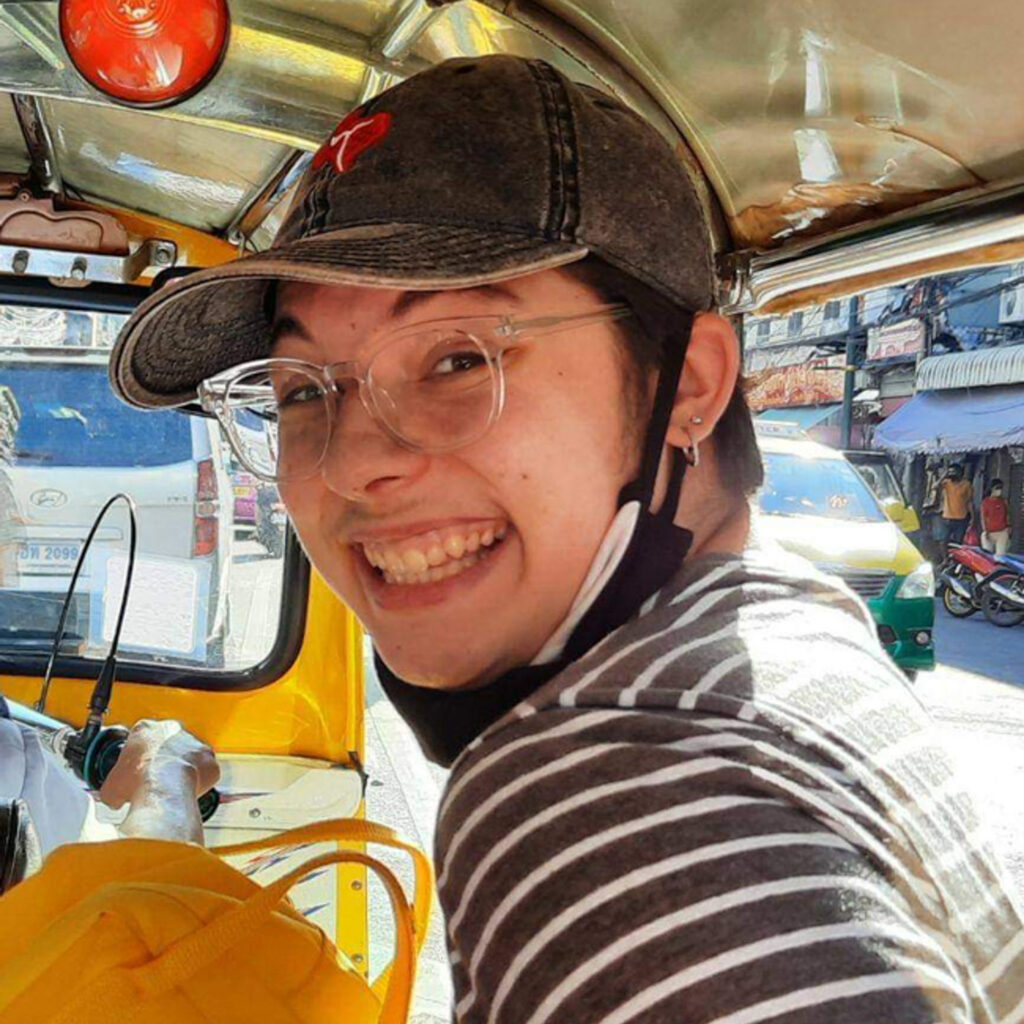
Jasper Duval CSSH ’23
Title: ‘Pray to the Mumbai Government’: Government Officials and Legal Exclusion in a Non-notified Settlement in India
Mentor: Liza Weinstein, CSSH, Sociology and Anthropology
Summit Award

Owen Graham-O’Regan CSSH ’23
Title: Changing Laws or Changing Norms? The Impact of Female Leadership on Intimate Partner Violence in India
Mentor: Bilge Erten, CSSH, Economics
Ascent Award

Meghna Iyer Bouvé ’22
Title: Improving Guardrail Damage Reporting to Promote Injury Prevention in Motor Vehicle Crashes
Mentor: Alisa Lincoln, Bouvé, Health Sciences
Summit Award

Haley Moriarty Bouvé ’23
Title: Parenting in the Time of Social Media: A Qualitative Study of Parental Involvement in Teens’ Social Media Use
Mentor: Rachel Rodgers, Bouvé, Applied Psychology
Base Camp Award

Dorian Stump Bouvé ’22
Title: American Firearm Suicide Prevention Project
Mentor: Alisa Lincoln, Bouvé, Health Sciences
Base Camp Award

Julia Zalvino COS ’24
Title: Which Types of Social Media Are Helpful for Body Image: Hearing from Diverse Youth
Mentor: Rachel Rodgers, Bouvé, Applied Psychology
Base Camp Award
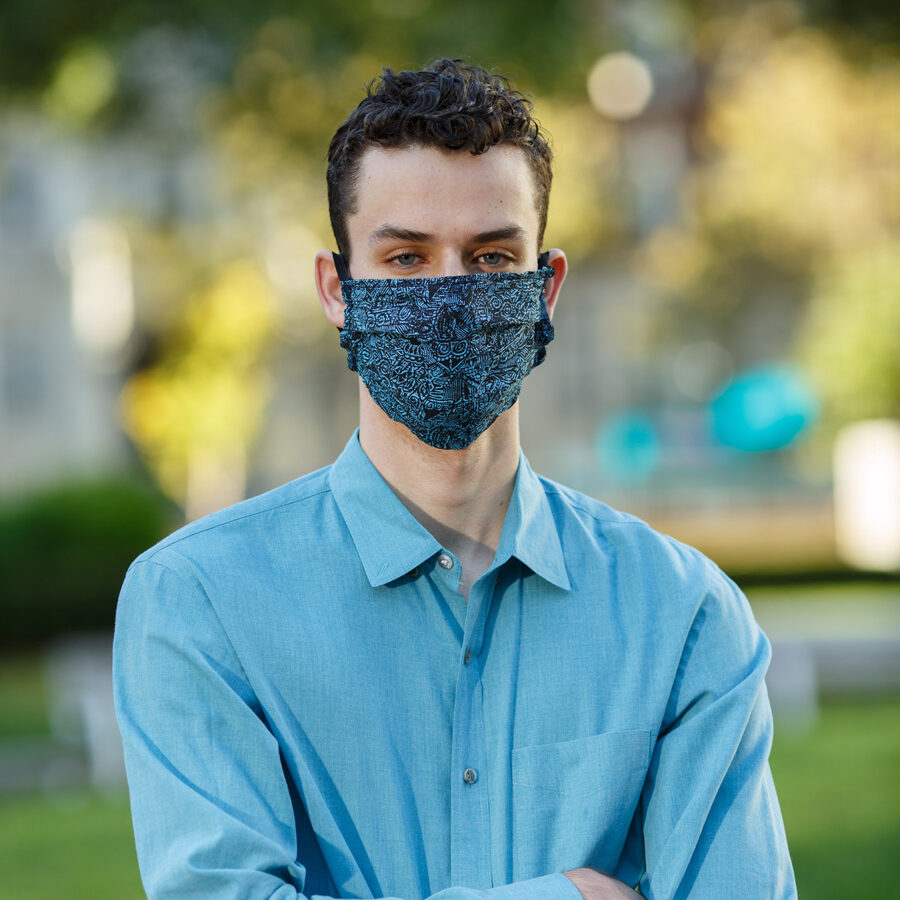
Kevin Dunne CSSH ’22
Title: COVID-19 and Mental Health
Mentor: Bilge Erten, CSSH, Economics
Ascent Award

Jasper Duval CSSH ’23
Title: ‘We Live in Garbage’: Legal Exclusion in a Non-Notified Settlement in Mumbai
Mentor: Liza Weinstein, CSSH, Sociology and Anthropology
Summit Award

Nikita Murli COS ’23
Title: Tracking Drug-Induced Homicide (DIH) Charges in the United States
Mentor: Leo Beletsky, Bouvé, Law and Public Policy
Base Camp Award

Thao-Mi Nguyen Bouvé ’25
Title: Un-Masking the Origins of Maternal Mortality/Morbidity Inequities (UMOMMI)
Mentor: Collette Ncube, Bouvé, Health Sciences
Base Camp Award

Ciara Sosnowski CAMD ’23
Title: Arts, Health, and Wellbeing: A Literature Review
Mentor: Rebekah Moore, CAMD, Music
Summit Award

Morgan Wong Bouvé ’24
Title: Un-Masking the Origins of Maternal Mortality/Morbidity Inequities (UMOMMI)
Mentor: Collette Ncube, Bouvé, Health Sciences
Base Camp Award

Yechan Yang COS ’22
Title: LGBTQ Health Care Disparities in Telemedicine
Mentor: Alisa Lincoln, Bouvé, Health Sciences
Base Camp Award

Lujane Barakat Bouvé ’21
Title: Oral Health Behaviors and Self-Image
Mentor: Rachel Rodgers, Bouvé, Applied Psychology
Ascent Award

Jasper Duval CSSH ’23
Title: The Shame of the Slum: An Exploratory Study of Territorial Stigma and Mental Well-Being in a Non-Notified Settlement in Mumbai
Mentor: Liza Weinstein, CSSH, Sociology and Anthropology
Ascent Award

Connor Holmes Bouvé ’21
Title: Exploring Transgender, Non-binary, and Genderqueer Dating App Use
Mentor: Laura Senier, Bouvé, Health Sciences
Summit Award

Anisa Amiji Bouvé ’22
Title: Examining Information-Seeking During COVID-19
Mentor: Miso Kim, CAMD, Art + Design
Base Camp Award

Cullen Bober Bouvé ’21
Title: Exploring DIH Charges and Carceral Budgets
Mentor: Leo Beletsky, Bouvé, Health Sciences
Ascent Award

Valeria Do Vale CSSH ’21
Title: Immigrants’ Healthcare Access Under Shifting Public Policies
Mentor: Tiffany Joseph, CSSH, Sociology and Anthropology
Ascent Award

Kevin Dunne CSSH ’21
Title: COVID-19 and Domestic Violence
Mentor: Bilge Erten, CSSH, Economics
Base Camp Award

Jasper Duval CSSH ’23
Title: The Shame of the Slum: An Exploratory Study of Territorial Stigma and Mental Wellbeing in a Non-Notified Settlement in Mumbai
Mentor: Liza Weinstein, CSSH, Sociology and Anthropology
Ascent Award
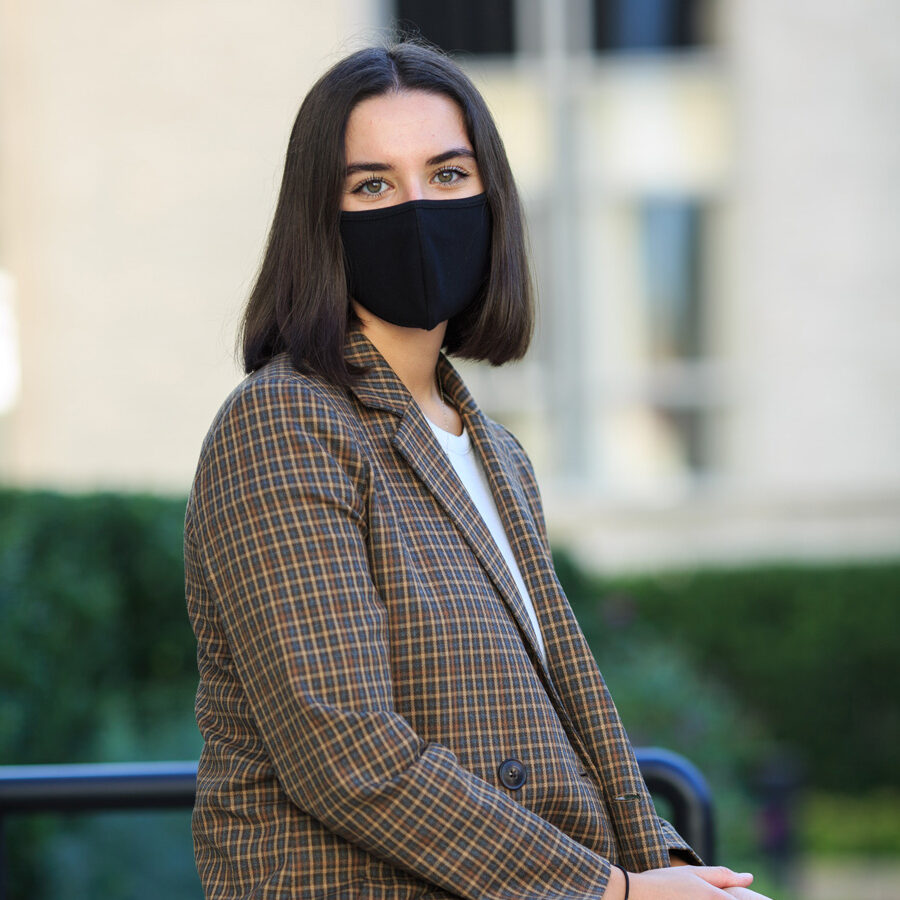
Angelica Fuiza Bouvé ’22
Title: Twenty Seconds a Day: The Impact of Tiktok Diet Culture Content on Young Women
Mentor: Rachel Rodgers, Bouvé, Applied Psychology
Summit Award

Rayna Haque Bouvé ’22
Title: A Qualitative Review of Mental Health and Exposure to Violence in Resettled Refugees
Mentor: Carmel Salhi, Bouvé, Health Sciences
Ascent Award
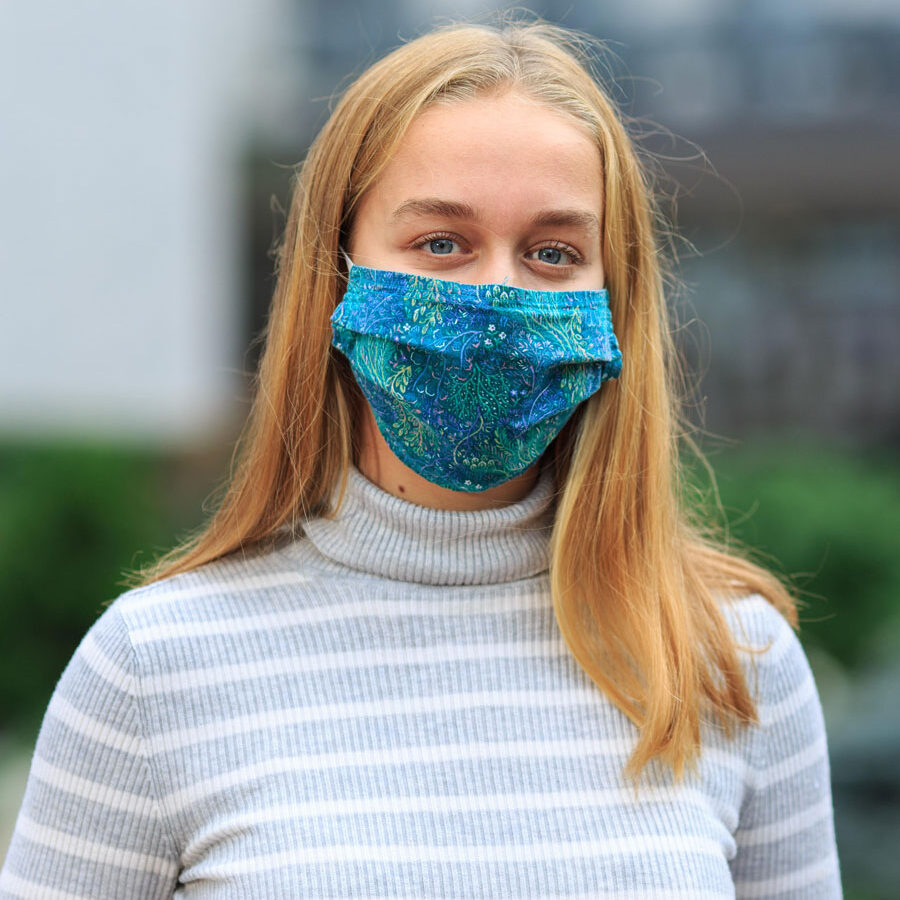
Cate Henning Bouvé ’23
Title: Drug-Induced Homicides: The Solution or the Problem?
Mentor: Leo Beletsky, Bouvé, Health Sciences
Base Camp Award

Kenadi Kaewmanaprasert Bouvé ’24
Title: Influence of Documentation Status and Race on Immigrant Healthcare Access
Mentor: Tiffany Joseph, CSSH, Sociology and Anthropology
Ascent Award
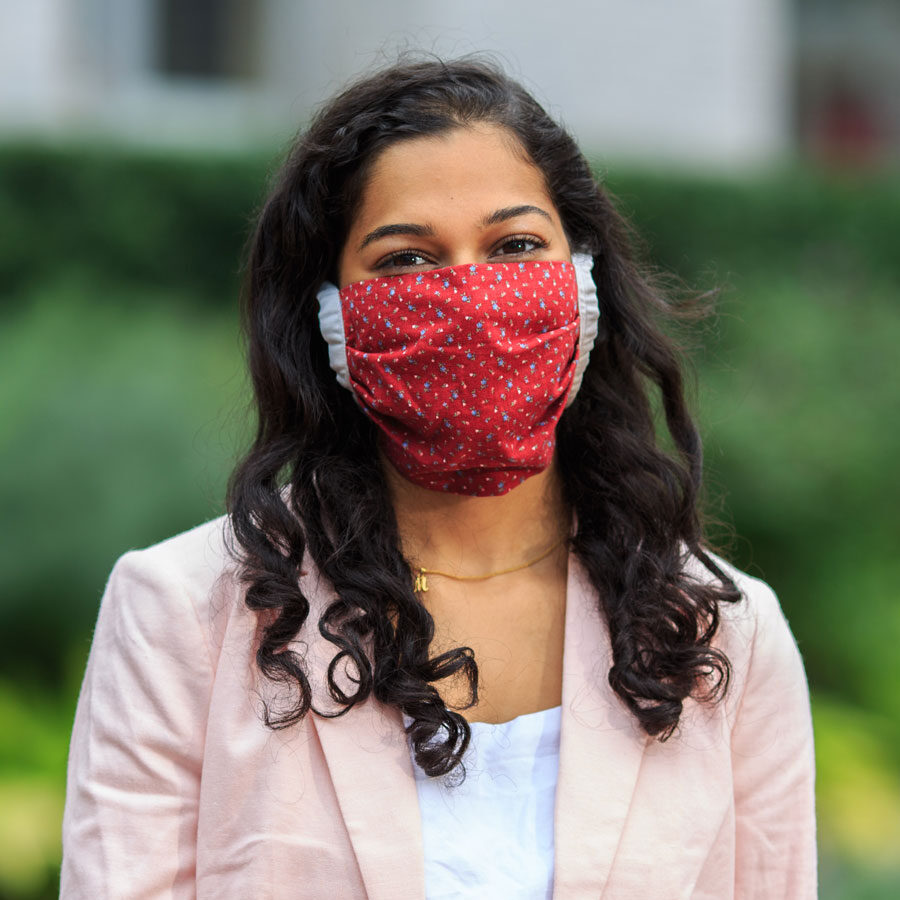
Meghna Iyer Bouvé ’22
Title: Improving Guardrail Damage Reporting to Promote Injury Prevention in Motor Vehicle Accidents
Mentor: Alisa Lincoln, Bouvé, Health Sciences
Summit Award

Winnie Li Bouvé ’21
Title: Digital Media Use and Mental Health in College Students
Mentor: Lichuan Ye, Bouvé, Nursing
Ascent Award
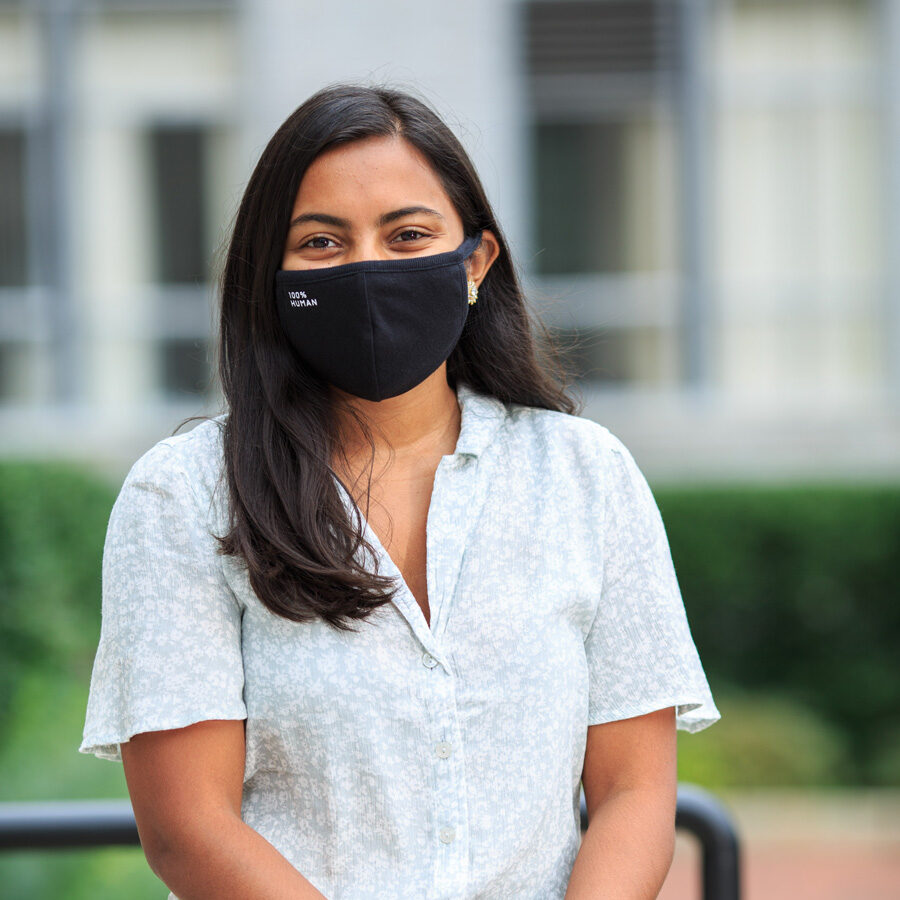
Shurobhi Nandi COS ’22
Title: Improving Access to Early Childhood Mental Health Services in Child Welfare
Mentor: Beth Molnar, Bouvé, Health Sciences
Ascent Award

Gal Nissan Bouvé ’22
Title: The Longitudinal Effects of Body Image Concerns on Health Outcomes
Mentor: Rachel Rodgers, Bouvé, Applied Psychology
Base Camp Award

Maya Rabow COS ’23
Title: Crisis Responses in Early Childhood Mental Health during COVID-19: The Importance of Systems-Building
Mentor: Beth Molnar, Bouvé, Health Sciences
Base Camp Award


Please note that the Institute Newsletter has been discontinued.
Instead, sign up for our weekly news blast.
View past installments of the IHESJR Monthly Newsletter below.
This has been an exciting and productive year for us at the Institute for Health Equity and Social Justice Research. As you will see in the reports our teams of faculty, students, and community partners have been busy with new and exciting programmatic and research efforts.
The mission of this institute is to generate scientific knowledge needed to promote health equity and social justice, and reduce disparities in health, mental health, and well-being.
The Institute on Urban Health Research was first funded in 2001 as part of Provost’s initiative and was led by its Founding Director, Dr. Hortensia Amaro. The IUHR was formed as a university-wide research center that would engage faculty and students from diverse disciplines. It later was moved into Bouvé College of Health Sciences, which remains our home college.
Later the Institute name was amended to The Institute on Urban Health Research and Practice under the leadership of John Auerbach. In 2018, with the appointment of Dr. Alisa K. Lincoln as the Institute Director, we have changed our name and are now the Institute for Health Equity and Social Justice Research.
The Institute remains committed to the core mission first established in 2001 to improve the health and well-being of the residents of Boston and other urban communities. The Institute is focused on the social determinants of health in urban settings, the promotion of health equity and the elimination of health disparities. However, with the growth of the Institute, our ongoing work with diverse groups of students, faculty and community partners, and the current scientific and social needs, we have rearticulated our mission to include greater attention to health equity and social justice and to reflect our partnerships with the growing number of communities impacted by inequity and social marginalization.
Despite tremendous advances in health care, the benefits of these advances have not been equally shared across communities. Many communities experience disparities in health, mental health, and well-being and at the Institute for Health Equity and Social Justice Research our teams of interdisciplinary researchers, students and community partners are engaged in a wide-range of efforts to prevent and reduce these health disparities associated with race, gender, neighborhood, immigration status, sexual orientation, and other stigmatized or marginalized statuses.
We focus attention on the social and economic determinants of health and mental health and increasing understanding of the factors that challenge health and well-being and those that promote community strength and resilience. Our teams are engaged in the development of strategies to reduce disparities through intervention and policy aimed at promoting health equity and social justice.
Disparities in health and mental health arise and persist as the result of complex individual, community, societal and global factors. At the Institute for Health Equity and Social Justice Research we bring together faculty and students from across Northeastern University’s many departments and colleges, along with our research partners, to tackle these complex challenges. Our teams draw upon a wide range of research methods and intervention strategies but share common commitments to promoting health equity and social justice through high-impact, community engaged research.
To learn more about what we do, or for more information on how to work with the Institute of Health Equity and Social Justice Research (IHESJR), contact us.
Phone: 617-373-5813
Email: [email protected]
Hours: 9:00AM – 5:00PM (ET)
Postal Address:
Northeastern University
360 Huntington Ave, 314 INV
Boston, MA 02115
For questions related to the Vicarious Trauma Toolkit, please email Vicarious Trauma Toolkit Information.
Connect with us on: